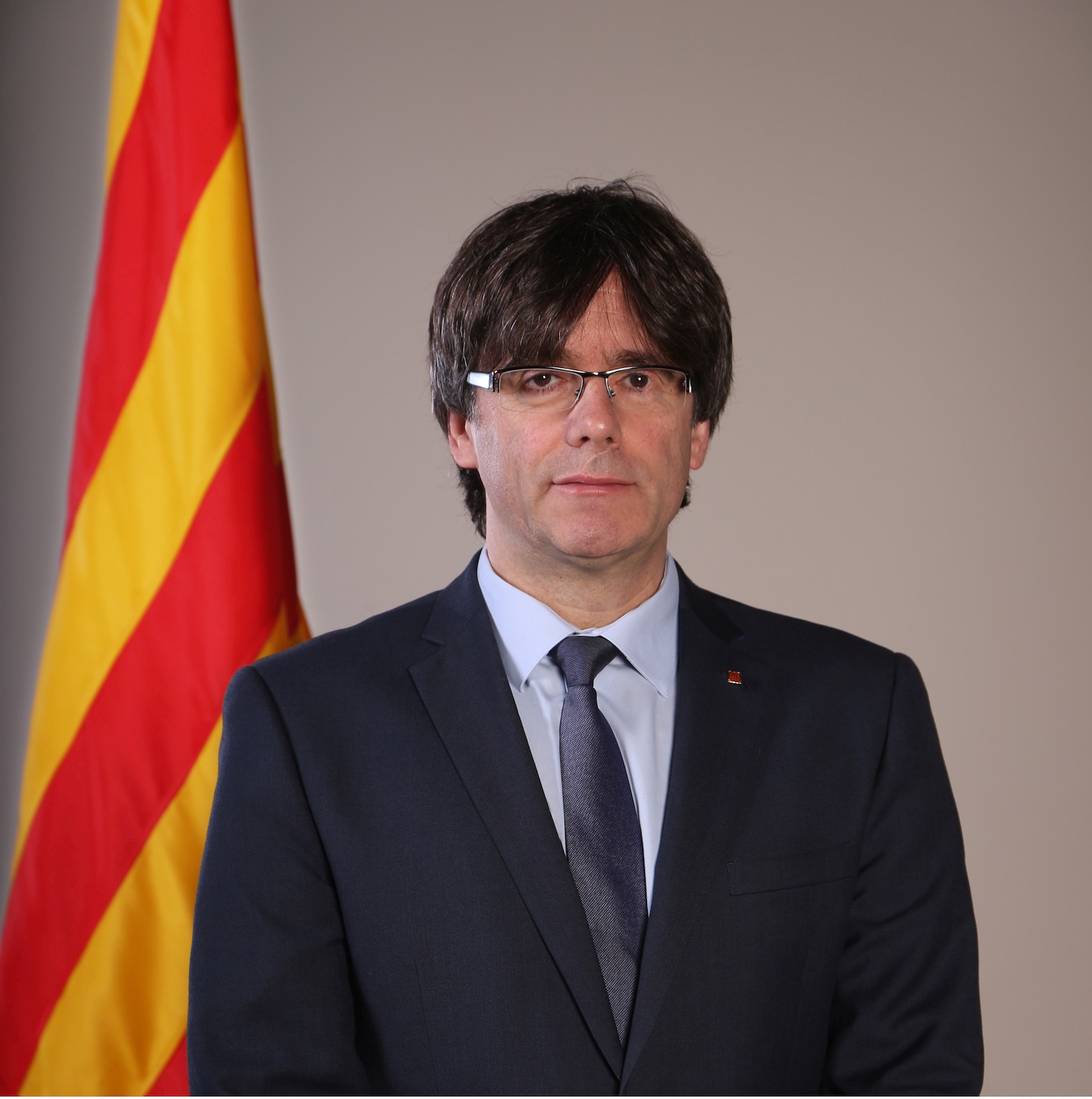Catalonia’s deposed President Carles Puigdemont vowed Saturday to “defend the just cause of the Catalan people” as he returned to Belgium.
Four months after he was detained in Germany at Madrid’s request, Puigdemont was able to travel to Belgium after a Spanish court droppped a European arrest warrant for him.
“This is not the end of my journey. I will travel to the last corner of our continent to defend the just cause of the Catalan people,” he said at the offices of Catalonia’s delegation in Brussels.
He was joined at the news conference by his designated successor Quim Torra, who still considers him the “legitimate president” of Catalonia.
https://twitter.com/CatalansForYes/status/1023119078339371008
Puigdemont was to travel south of the Belgian capital later Saturday to the town of Waterloo, known for another battle — French emperor Napoleon’s defeat by a mix of European forces in 1815 — for a ceremony.
The 55-year-old former regional leader intends to set up a “Republican council” at his Waterloo base to continue to fight for Catalan independence, as well as an assembly composed of local officials to work in parallel with the Catalan government.
“My political activity will be based in Belgium, of course with the aim of pursuing the mandate by the people” for an independent Catalonia, Puigdemont said in Berlin when he announced his return this week.
Sacked as Catalan president after a failed secession bid on October 27, Puigdemont and several members of his executive fled to Brussels several days later.
He was then arrested in Germany at the end of March on his return from a trip to Finland.
Acabo d'arribar a Brussel·les, després de deixar Alemanya a primera hora del matí. Han passat quatre mesos d'ençà que hi vaig entrar, tornant de Finlàndia. Anhelava el retorn a la capital europea, però a Alemanya hi he deixat unes vivències i unes coneixences inesborrables.
— krls.eth / Carles Puigdemont (@KRLS) July 28, 2018
Arrest Warrant Dropped
Puigdemont was freed on bail and a German court ruled that he could be extradited only on possible corruption charges and not for “rebellion” as sought by Madrid.
Following that decision, Spain’s Supreme Court judge Pablo Llarena, in charge of the case against separatist leaders, dropped the international arrest warrant.
From Belgium, Puigdemont will be able to travel where he likes, except to Spain where he is still wanted for rebellion, which carries up to 25 years in jail, and for misuse of public funds.
In theory, he could remain in self-exile for 20 years, which in Spain’s legal system is the time limit after which the rebellion charge would no longer be valid.
Although power is now officially in Torra’s hands, Puigdemont continues to exert strong influence in the region.
“In Brussels, we will continue… to develop activities linked to that which the people of Catalonia approved on October 1,” Puigdemont said in Germany, in reference to the referendum banned by Spain’s courts and marred by police violence.
Five other leading members of the pro-independence movement are in Belgium, Switzerland and Scotland.






















